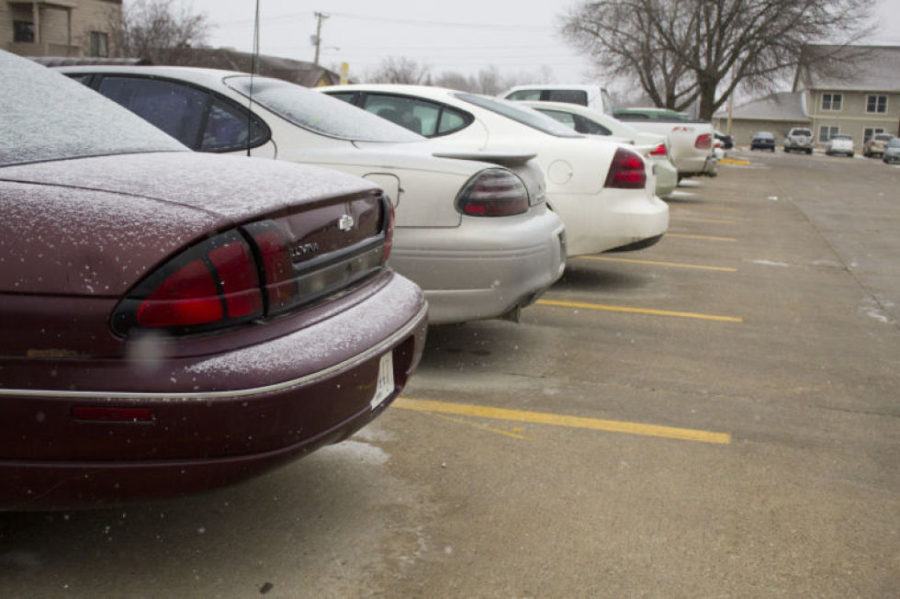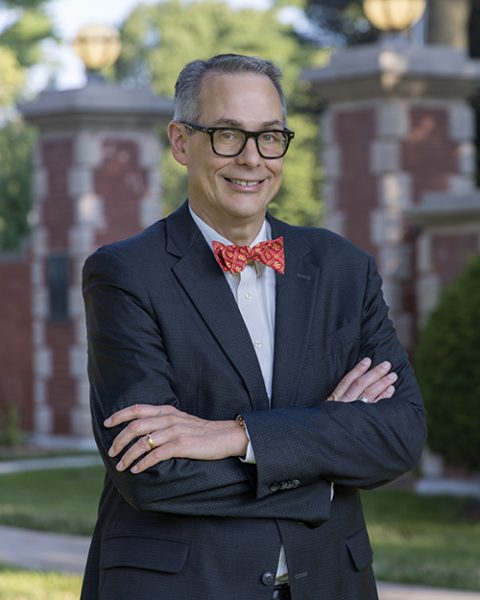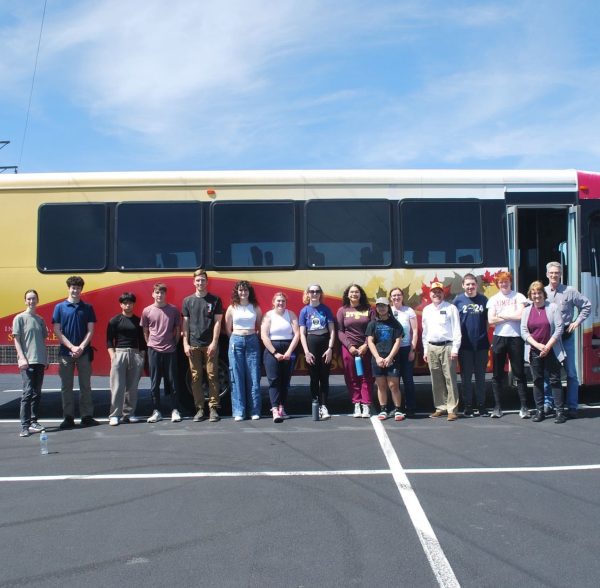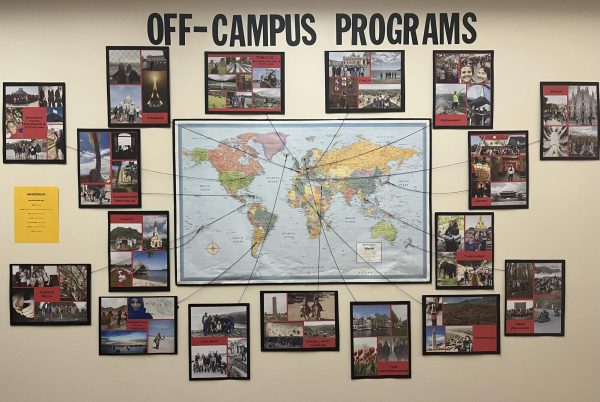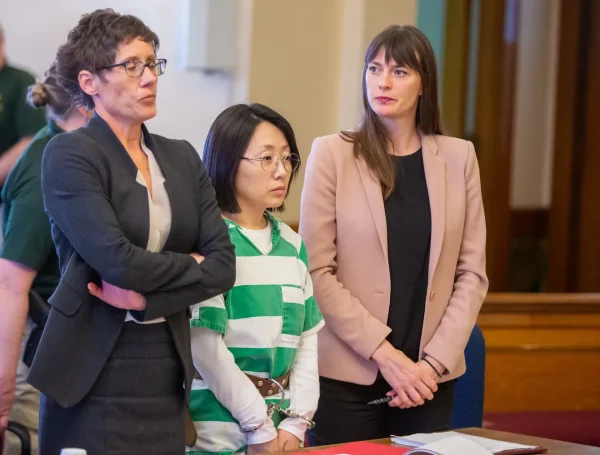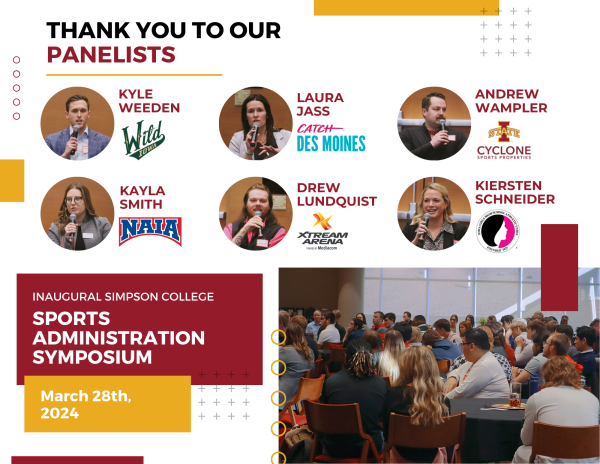“Divisive issue” of parking in discussion after city ordinance change
February 20, 2014
Simpson’s Residence Life and Security offices are helping students adjust after an Indianola city ordinance restricted parking around campus at the beginning of this year.
An ordinance passed in July 2013 limited parking on city streets after a study taken by the city manager and council collected input from city residents along the affected streets.
Parking between 2:00am and 5:00am is reserved for residents with city passes.
“Small changes were implemented within Simpson’s parking system to adjust accordingly to what we thought the needs of Simpson students would be,” Luke Behaunek, director of residence life, said.
Senior Courtney Yearous has found the new system to be difficult.
“It’s really inconvenient when you pay fifty dollars for a parking pass that you can’t utilize as much as you’d like,” Yearous said.
The ordinance was published July 24 and took affect immediately, according to records signed by mayor Ken Bresnan and city clerk Diana Bowlin. Simpson College amended the color-coding system from previous years to a two-color badge system, yellow for returning students and silver for first years, to simplify available parking around campus.
“In any student lot with only a few exceptions, upper division students can park anywhere, while first year students are restricted to the lots around Barker and some rows within upper division lots,” Behaunek said.
The new system has rocky moments.
“For me in the apartments, it’s a really big inconvenience because faculty parks in our parking lot, commuters park in our parking lot, first years park in that parking lot. If you leave during the day for an internship when you get back and try to park around noon or one, there’s absolutely no place to park,” Yearous said.
Director of Security Chris Frerichs said security randomly stops by campus lots to count how many available spots there are for students having trouble locating a spot.
“All they need to do if they’re driving around having problems, give us a call and we’ll try to get them to the right location,” he said.
Frerichs has seen an increase in vehicle registration from years past.
“We expected that to happen obviously because the cars that were on the street in the years past tried to make it through without having to worry about snow ordinances and registering. Some of those have gone ahead and registered this year,” Frerichs said.
Questions on the annual residence life experience survey sent out in November are helping the college decide what needs to be adjusted in the policy.
Behaunek will be meeting with a panel of students within the next few weeks to discuss feedback from the survey.
“We just hope to have a discussion with them about parking at Simpson, to see if any new ideas come out of that where we can improve the satisfaction around campus,” Behaunek said. “We were pretty strategic on having a diverse group of students in terms of residential location.”
Any feedback rising out of the panel will be proposed to Dean of Students Jim Thorius, Behaunek said, to discuss whether it could be put into practice and how fast policy could change.
“If they’re simple changes, that could happen pretty immediately, I would say a week or two after the conversation, but larger changes probably wouldn’t be implemented until fall of 2014,” Behaunek said.
Yearous doesn’t know what Simpson could change to make things better.
“There’s just not enough room in Simpson’s jurisdiction. There’s nothing they can do, the city kind of took that away from the college. We’re utilizing as much land as we have,” Yearous said.
Frerichs welcomes any questions students might have with the new system.
“Parking can be kind of a divisive issue so we try to explain why we do the things that we’re doing, we’re not always right, and we’re always looking to see if we can improve, we try to get everyone’s input because parking can have a domino effect,” Frerichs said.



